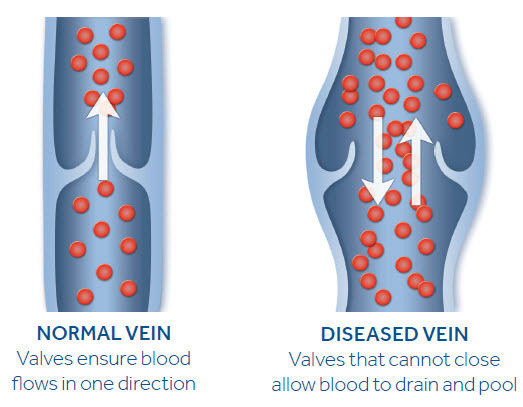Chronic venous insufficiency (CVI) is a medical condition where the veins in your legs struggle to send blood back to your heart. This happens because the valves in the veins, which usually keep blood flowing in the correct direction, become damaged or weakened. As a result, blood pools in the legs, causing a variety of signs and symptoms. CVI is a common condition that affects millions of people worldwide and can significantly impact quality of life if left untreated.
Chronic venous insufficiency manifests through several signs and symptoms, which can vary in severity. Common findings include:
These symptoms tend to worsen over time, highlighting the importance of early diagnosis and treatment.

CVI can be dangerous if not managed properly. While it is not typically life-threatening, it can make the affected tissue unhealthy and lead to serious complications. These include recurrent venous ulcers, skin changes, and an increased risk of infections. In severe cases, these complications can lead to limb amputation. So, it is crucial to seek medical attention if you suspect you have CVI to prevent these potential complications.
Diagnosing CVI typically involves a combination of a physical examination and diagnostic tests.
During the physical exam, we will check for visible signs of the condition, such as swelling, skin changes, and varicose veins. Additionally, you may undergo a Doppler ultrasound, a non-invasive test that uses sound waves to visualize blood flow in the veins. This helps us to identify any blockages or valve dysfunctions.

CVI occurs when the valves in the veins that help blood flow back to the heart wear out and/or become damaged. Several factors can contribute to this condition, including:
Certain factors can elevate the risk of developing CVI, including:
Treatment for CVI aims to improve blood flow, reduce symptoms, and prevent complications. Common treatment options include:
While there is no definitive cure for CVI, we can help you effectively manage it with proper treatment and lifestyle changes. Early intervention is key to slowing the progression of the disease and minimizing symptoms. Maintaining a healthy weight, exercising regularly, and avoiding prolonged periods of inactivity can help manage CVI and improve overall vascular health. Regular follow-ups are also essential to monitor the condition and adjust treatment as needed.
At Southlake Vein Care, we provide comprehensive care and develop personalized treatment plans for our patients. We have years of experience treating chronic venous insufficiency and other venous disorders. For more information or to schedule a consultation, request an appointment online or call our office at 972-378-5347.
In most cases, health insurance and Medicare will cover treatment of vein procedures, assuming the patient meets the criteria for treatment. Out of pocket expense depends on many factors, such as deductible met and the specifics of the individual plan. Our staff will work with you to understand the benefits and coverage provided by your insurance as well as any requirements that will need to be met.






















